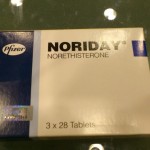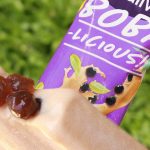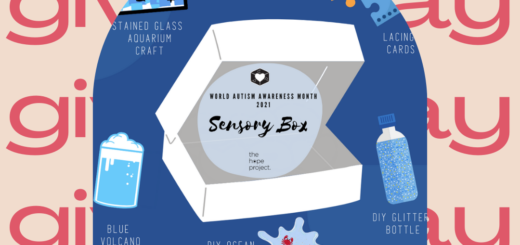So since I was told to take the combined pill by an idiot doctor, my milk…
Everything You Need To Know About Formula Milk Ingredients
Here’s our all-in-one guide that tells you everything you need to know about the formula milk ingredients!
As parents in today’s world, the information that you can find about milk formula can be confusing, especially since there are so many brands out there. Knowing that all you want is the best for your little one’s development, we have created this all-in-one guide that tells you everything you need to know about the ingredients in children formula milk, which includes what to look for, what to avoid, and what are the nutrients your child needs. Read on to discover more!

Do milk formulas contain chemicals?
The short answer is yes, all milk formulas contain chemicals. However, chemicals can mean many things. For instance, an ingredient that most parents know, DHA, is a beneficial chemical — a natural fatty acid — that supports the growth of your child’s brain. Therefore, what you should actually look out for are harmful chemicals that are detrimental to your child’s health.

How do you know that a milk formula is of quality?
The surefire way to identify a quality milk formula is to check the list of ingredients. As a start, here are some of the key ingredients for brain development and overall growth:
1. Calcium
Calcium is a nutrient that helps your little one’s bones grow. You can rest assured that the calcium contained in quality milk formulas is made to be easily absorbed by your child.
2. Protein
There are generally two types of proteins found in milk formulas, namely caseins (insoluble milk proteins) and whey proteins (soluble milk proteins). Casein helps with the absorption of, while whey protein helps in growing muscles.
3. Prebiotics
Prebiotics is a type of fibre for the gut bacteria in our digestive system. It also helps boost our immune system and promotes better digestive health.
4. Probiotics
Probiotics are live bacteria and yeasts that are very beneficial for your little one. The ones you will commonly find on ingredient labels are G.O.S and Bifido Lactis, and they both help develop your little one’s immune system while lowering the chances of gastrointestinal tract infections.

5. Docosahexaenoic Acid (DHA)
DHA is a long-chain polyunsaturated fatty acid that is crucial for the growth and development of your little one’s brain and eyes.
6. Arachidonic Acid (ARA or AA)
ADA is another important fatty acid that’s critical for the growth and development of your little one’s body, brain and health.
7. Alpha-lactalbumin
This protein can be found in selected milk formulas. Also known as α-Lactalbumin or α-La, it helps with the absorption of essential minerals while providing a well-balanced supply of essential amino acids for your little one.
Ingredients to avoid when searching for a milk formula
Did you know that certain milk formulas contain ingredients that are bad for your little one? Here are some of the more common ones:
1. Soybean Oil and Soy Lecithin
These 2 ingredients may cause nutrient deficiencies, which is why they should be avoided altogether.
2. Artificial DHA and ARA
Did you know that there are actually artificial versions of DHA and ARA? The oils are obtained from processes that utilise neurotoxic hexane, which makes it bad for your child.
3. Palm oil
Some manufacturers use palm oil as an alternative to a natural fatty acid known as palmitic acid. However, they are completely different ingredients in nature, and palm oil can prevent the body from properly absorbing calcium, leading to low bone density.
4. Synthetic nutrients
Some milk formula manufacturers use synthetic nutrients as an alternative. Unfortunately, many of these synthetic nutrients are processed with neurotoxic, harmful chemicals such as L-Carnitine, lycopene, lutein, taurine, L-methionine and nucleotides. Avoid these at all costs.
5. BPA In plastic
This isn’t a milk formula ingredient, but an ingredient used to make plastic milk bottles. BPA contains harmful chemicals that can leach into the milk formula when it is hot. Therefore, allow the formula to cool down before pouring it into the bottle, and also avoid heating the bottle in a microwave oven. Ultimately, the best choice is to switch to glass bottles.
Give your child an essential head start with the right milk formula
After going through this list, you can now make well-informed decisions when it comes to choosing a milk formula for your little one. Looking to switch milk formulas? Here are some great tips that will help make the transition simple and quick!

Too many milk formulas available and you’re not sure where to start? We recommend the upgraded Friso® Gold with Novas Signature Milk. This upgraded formulation is formulated with naturally small and soft-structure molecules that are easy for your child to digest. It also contains over 50 essential nutrients including DHA, AA, GOD, Bifido Lactis, calcium, protein, vitamins and minerals to support your child’s growth and development. For more information, you can also call the Friso® Gold Care Line at 1800-88-1647 for support, available every Monday to Friday, from 8.30 am to 4.30 pm.
References
https://hvmag.com/life-style/health/formula-101-the-bad-news-about-feeding-your-baby-formula/
https://www.fatherly.com/parenting/parents-myths-baby-formula-science/
https://www.formuland.com/ultimate-guide-finding-best-baby-formula-10-ingredients-avoid/
https://www.babygaga.com/15-things-in-baby-formula-that-are-toxic/
https://www.ncbi.nlm.nih.gov/pmc/articles/PMC4848685/
https://pubmed.ncbi.nlm.nih.gov/14552064/
This article is sponsored by Friso Gold.
To be featured on Ninja Housewife, email [email protected]





















Facebook Comments